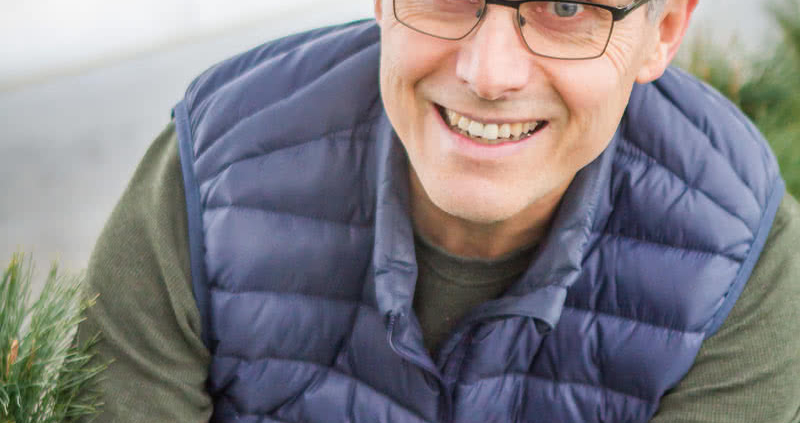Greg O’Neill
Foresters oversee the planting of around 250 million trees each year in British Columbia. For every site where trees are planted, a decision has to be made about which seeds to use. The objective? To select varieties that are most likely to result in strong, resilient trees that grow rapidly and can withstand natural adversity—like pests and climate change.
That’s where the BC Ministry of Forest, Lands and Natural Resource Operations comes in, and the work of forest geneticists like Greg O’Neill. In particular, O’Neill’s work focuses on how to select seed that will result in trees that are better adapted to climate change.
“We’re trying to do what nature does naturally,” he says. “The climate’s shifted many times in past, but right now, the climates are changing so fast, trees cannot keep up.”
Along with his colleagues at the Kalamalka Forestry Centre in Vernon, O’Neill is leading the way nationally in his field, a profession he says he came into by chance. After completing a bachelor’s degree in biology and a master’s degree in forest ecology, both at the University of British Columbia, he worked for a year before enrolling at Oregon State University and completing a doctorate in forest genetics, with a focus on the genetics of adaptation in Douglas fir.
“It was a launching pad,” he says of his doctoral research. “It gave me all the tools necessary to start studying how tree populations differ. Understanding that is the basis for understanding climate change.”
At the time of his PhD, responding to climate change was barely on the horizon. “It was pure luck that my PhD prepared me very well to study responses to climate change in forestry,” he says.
Following some post-doctoral research at UBC, O’Neill worked as a consultant with the Ministry of Forests and was ultimately hired full time. “I was hired as a tree breeder, but I never did any tree breeding,” O’Neill explains with a laugh. “The man I was hired to replace never retired. I saw this gap, this need for finding strategies to address climate change in forest plantation and forest establishment.”
O’Neill decided to look for solutions to mitigate the impacts of climate change, and turned his focus to BC’s provenance trials—massive plantation experiments with row upon row of carefully marked trees grown with seed sourced from around the province. He saw a new opportunity in the provenance trials: “They are ideal climate change laboratories. It was one of these serendipitous discoveries of science—you do something for one reason and it turns out it has applications to some entirely different areas.”
His goal over the next few years is to change provincial policies on seed selection to ensure those 250 million trees we plant each year will be pre-adapted to warmer climates. BC’s forests are in good hands.

